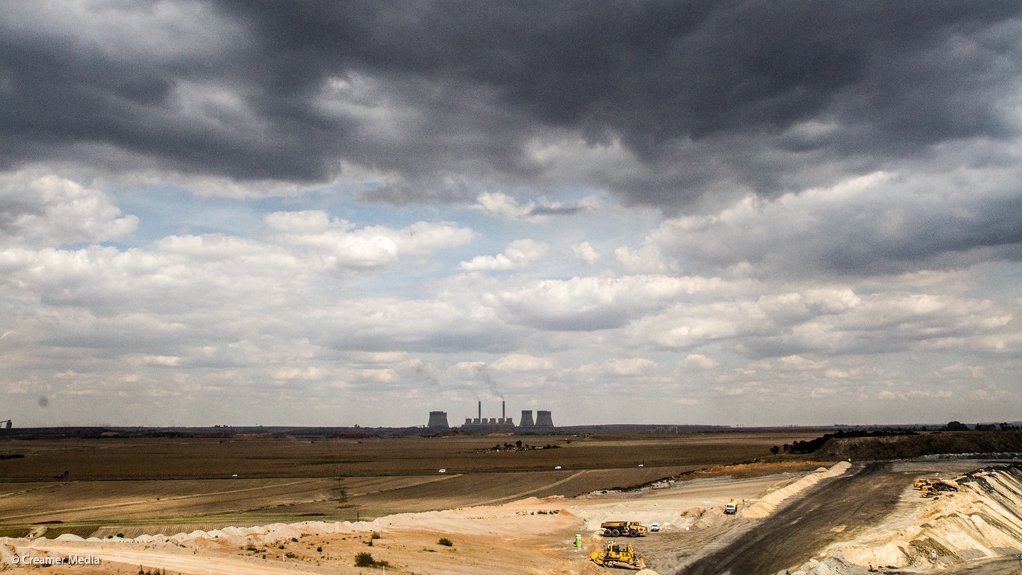No immediate clarity has been provided as to how the current proposal to extend the life of certain coal stations beyond their scheduled retirement dates has been aligned with the conditions of a R254-billion Eskom debt-relief package, which was unveiled by Finance Minister Enoch Godongwana in February.
During a Standing Committee on Appropriations briefing convened in Parliament on the Eskom Debt Relief Bill, Eskom interim CEO Calib Cassim confirmed that the conditions prevented Eskom from investing in any new greenfield power generation, including renewables.
It was also confirmed that any generation-linked capital expenditure (capex) would be confined to the maintenance of the existing fleet, as well as the investments required for the coal-fired power stations to meet minimum emission standards and, in the case of Medupi, to install flue-gas desulphurisation units.
Investments are allowed to be undertaken, however, to strengthen and expand Eskom’s transmission and distribution networks, but the utility will require written permission from the Finance Minister should it wish to undertake any new borrowing to fund such projects.
No specific clarity was provided as to whether generation-linked maintenance and environmental capex could be applied to units that have hitherto been earmarked for retirement, including units at the de-mothballed Camden power station that are meant to begin decommissioning in 2024.
Extending the life of such units would require funding, both to ensure that the unit is in a condition to operate safely and in compliance with environmental standards beyond its dead-stop date, as well as to purchase the coal, water and other primary inputs that are necessary to generate electricity.
The life-extension proposal was first made by Electricity Minister Dr Kgosientsho Ramokgopa following his tour of the ailing coal fleet and has since been accepted by the governing African National Congress, making it likely that it will become policy as South Africa scrambles to tackle intensifying loadshedding.
Delaying the decommissioning of certain stations is premised on an argument that new cleaner generation is unlikely to be introduced in time to close the deficit left by the shutting of the stations and the Minister has even claimed that the delay will not derail South Africa’s overall decarbonisation programme or the country’s net-zero by 2050 aspiration.
Nevertheless, the proposal could well jeopardise South Africa’s access to further concessional funding under the $8.5-billion Just Energy Transition Partnership concluded in 2021 with France, Germany, the UK, the US and the European Union.
However, the focus of questioning by Parliamentarians was on whether Eskom would meet the conditions on the debt-relief package after failing to meet the conditions associated with previous bail-outs, which amounted to a combined R181-billion over the past five years.
Under the terms of the latest package, Eskom will be allowed to convert the National Treasury loans to equity, which will strengthen its balance sheet by increasing its equity while reducing debt over the coming three years from R454-billion at the end of December 2022 to R356-billion by the end of its 2026 financial year. Government would also take over up to R70-billion of the utility’s debt at that time through an arrangement that was yet to be determined.
Acting CFO Martin Buys said that Eskom was required to prove compliance to the National Treasury quarterly and had also been granted a quarter grace period to remedy any noncompliance. Should it fail to comply, there would be no debt-to-equity conversion and the transfer would have to be reflected as a loan in Eskom’s financial statements.
Under a scenario where Eskom complies, Buys said the fact that the National Treasury would be responsible for servicing Eskom’s debt, the utility’s cash from operations would be free to be used for the capital programme.
“For this financial year, FY24, there will be around R35- to R40-billion available for that capex . . . and then it will actually build up slightly over the five-year period to about R55-billion,” Buys reported.
Cassim said the main positive of the structure was that it enabled Eskom to release the capex in advance, as the utility would be receiving the loan regardless of whether it was all converted to equity.
“But if we don’t meet the conditions, we can’t convert the loan to equity and in four- or five-years’ time we will land up with a big loan debt balance on the balance sheet,” Cassim said.
Newly appointed group executive for generation Bheki Nxumalo said the fact that the capex amounts were certain for the coming three years would enable the division to plan for all the upcoming major outages, which had not been the case where finance was being released on a piecemeal basis.
“So really the ball is now in our court as the generation team,” Nxumalo said, adding that the teams he had assembled was in the process of planning for the next 36 months.
He reported that private industry experts were also being brought in to “stress test” these plans.
EMAIL THIS ARTICLE SAVE THIS ARTICLE ARTICLE ENQUIRY
To subscribe email subscriptions@creamermedia.co.za or click here
To advertise email advertising@creamermedia.co.za or click here











